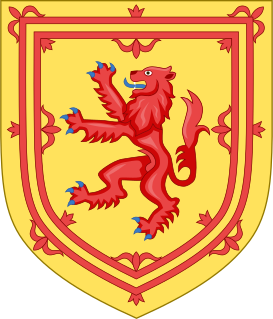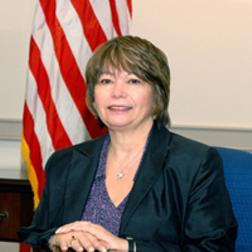
The United States Department of Health and Human Services (HHS) is a cabinet-level executive branch department of the U.S. federal government created to protect the health of all Americans and providing essential human services. Its motto is "Improving the health, safety, and well-being of America". Before the separate federal Department of Education was created in 1979, it was called the Department of Health, Education, and Welfare (HEW).
The courts of England and Wales, supported administratively by His Majesty's Courts and Tribunals Service, are the civil and criminal courts responsible for the administration of justice in England and Wales.

A justice of the peace (JP) is a judicial officer of a lower or puisne court, elected or appointed by means of a commission to keep the peace. In past centuries the term commissioner of the peace was often used with the same meaning. Depending on the jurisdiction, such justices dispense summary justice or merely deal with local administrative applications in common law jurisdictions. Justices of the peace are appointed or elected from the citizens of the jurisdiction in which they serve, and are usually not required to have any formal legal education in order to qualify for the office. Some jurisdictions have varying forms of training for JPs.

The term magistrate is used in a variety of systems of governments and laws to refer to a civilian officer who administers the law. In ancient Rome, a magistratus was one of the highest ranking government officers, and possessed both judicial and executive powers. In other parts of the world, such as China, a magistrate was responsible for administration over a particular geographic area. Today, in some jurisdictions, a magistrate is a judicial officer who hears cases in a lower court, and typically deals with more minor or preliminary matters. In other jurisdictions, magistrates are typically trained volunteers appointed to deal with criminal and civil matters in their local areas.
The Children and Family Court Advisory and Support Service (Cafcass) is a non-departmental public body in England set up to promote the welfare of children and families involved in family court. It was formed in April 2001 under the provisions of the Criminal Justice and Court Services Act 2000 and is accountable to Parliament through the Ministry of Justice. Cafcass is independent of the courts, social services, education, health authorities and all similar agencies.

In France, career judges are considered civil servants exercising one of the sovereign powers of the state, so French citizens are eligible for judgeship, but not citizens of the other EU countries. France's independent court system enjoys special statutory protection from the executive branch. Procedures for the appointment, promotion, and removal of judges vary depending on whether it is for the ordinary or administrative stream. Judicial appointments in the judicial stream must be approved by a special panel, the High Council of the Judiciary. Once appointed, career judges serve for life and cannot be removed without specific disciplinary proceedings conducted before the Council with due process.

The courts of Scotland are responsible for administration of justice in Scotland, under statutory, common law and equitable provisions within Scots law. The courts are presided over by the judiciary of Scotland, who are the various judicial office holders responsible for issuing judgments, ensuring fair trials, and deciding on sentencing. The Court of Session is the supreme civil court of Scotland, subject to appeals to the Supreme Court of the United Kingdom, and the High Court of Justiciary is the supreme criminal court, which is only subject to the authority of the Supreme Court of the United Kingdom on devolution issues and human rights compatibility issues.

Public bodies of the Scottish Government are organisations that are funded by the Scottish Government. They form a tightly meshed network of executive and advisory non-departmental public bodies ("quangoes"); tribunals; and nationalised industries. Such public bodies are distinct from executive agencies of the Scottish Government, as unlike them they are not considered to be part of the Government and staff of public bodies are not civil servants, although executive agencies are listed in the Scottish Government's directory of national public bodies alongside other public bodies.

In England and Wales, a magistrates' court is a lower court which hears matters relating to summary offences and some triable either-way matters. Some civil law issues are also decided here, notably family proceedings. In 2015, there were roughly 330 magistrates' courts in England and Wales, though the government was considering closing up to 57 of these. The jurisdiction of magistrates' courts and rules governing them are set out in the Magistrates' Courts Act 1980.

A children's hearing is part of the legal and welfare systems in Scotland; it aims to combine justice and welfare for children and young people. As of 31 March 2020, 8,875 of Scotland's children were subject to a compulsory supervision order.
A teen court is a problem-solving court within the juvenile justice system where teens charged with certain types of offenses can be sentenced by a jury of same-aged peers. Their purpose is to provide an alternative disposition for juveniles who have committed a delinquent act, have committed a minor offense, or have been charged with a misdemeanor, and are otherwise eligible for diversion. Depending on their training, community support, and agreements with traditional court systems, most teen or youth courts are recognized as valid, legal venues for the process of hearing cases, sentencing and sentence fulfillment. Teen courts and their verdicts are not authorized by public law.

Child protection is the safeguarding of children from violence, exploitation, abuse, and neglect. Article 19 of the UN Convention on the Rights of the Child provides for the protection of children in and out of the home. One of the ways to ensure this is by giving them quality education, the fourth of the United Nations Sustainable Development Goals, in addition to other child protection systems.

The Philippines' Department of Social Welfare and Development is the executive department of the Philippine Government responsible for the protection of the social welfare of rights of Filipinos and to promote the social development.

The Australian Council of Social Service (ACOSS) is an Australian organisation that advocates for action to reduce poverty and inequality, and is the peak body for the community services sector in Australia. It was formed in 1956.
The Scottish Children's Reporter Administration (SCRA) is an executive non-departmental public body of the Scottish Government, with responsibility for protecting children at risk. SCRA was formed under the Local Government (Scotland) Act 1994 and became fully operational on 1 April 1996, taking over responsibility for the existing system of Children's Reporters.

Gladys Carrión is an Adjunct Research Scholar with Columbia University's Justice Lab. She was the Commissioner of the New York City Administration for Children's Services (ACS) until 2017 and a nationally recognized advocate for improving child well-being.

Magistrates are trained volunteers, selected from the local community, who deal with a wide range of criminal and civil proceedings. They are also known as Justices of the Peace. In the adult criminal court, magistrates decide on offences which carry up to twelve months in prison, or an unlimited fine. Magistrates also sit in the family court where they help resolve disputes that involve children, and in the youth court which deals with criminal matters involving young people aged 10-17. Established over 650 years ago, the magistracy is a key part of the judiciary of England and Wales, and it is a role underpinned by the principles of 'local justice' and 'justice by one's peers'.
A children's ombudsman, children's commissioner, youth commissioner, child advocate, children's commission, youth ombudsman or equivalent body is a public authority in various countries charged with the protection and promotion of the rights of children and young people, either in society at large, or in specific categories such as children in contact with the care system. The agencies usually have a substantial degree of independence from the executive, and generally operate as specialised ombudsman offices or national human rights institutions, dealing with individual complaints, intervening with other public authorities, conducting research, and – where their mandate permits them to engage in advocacy – generally promoting children's rights in public policy, law and practice. The first children's commissioner was established in Norway in 1981. The creation of such institutions has been promoted by the United Nations Committee on the Rights of the Child, and, from 1990 onwards, by the Council of Europe.

The Wisconsin Department of Children and Families (DCF) is an agency of the Wisconsin state government responsible for providing services to assist children and families and to oversee county offices handling those services. This includes child protective services, adoption and foster care services, and juvenile justice services. It also manages the licensing and regulation of facilities involved in the foster care and day care systems, performs background investigations of child care providers, and investigates incidents of potential child abuse or neglect. It administers the Wisconsin Works (W-2) program, the child care subsidy program, child support enforcement and paternity establishment services, and programs related to the federal Temporary Assistance to Needy Families (TANF) income support program.

Patrick McGuire is a Scottish solicitor and solicitor advocate. He is a partner with personal injury law firm Thompsons Solicitors Scotland.













